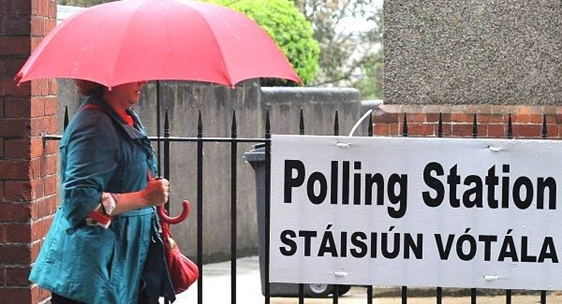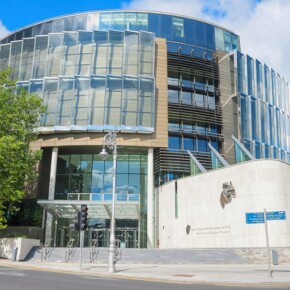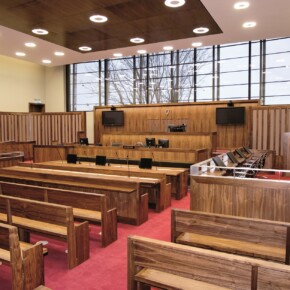Howth-Malahide has something for everyone in the audience
Mike Finnerty 24 Jan 2024
There are just two 7-seater constituencies on Fingal County Council, and both of them just so happen to be on the Northside of Dublin.
If you ever find yourself in a pub quiz with a particularly sadistic quiz master, you will now know that Howth-Malahide and Swords are the answer.
The constituency of Howth-Malahide came into being in 2009 after both Howth and Malahide were separate constituencies until 2009’s local elections.
The constituency has fluctuated from out as punk rock (5) to progressive rock (8 seats), to its current form as a 7-seater.
With that groundwork established, you may be surprised to hear that Howth-Malahide is a remarkably solid constituency; voters like what they like.
Swords went 14 counts before they elected all of their candidates in 2019, while Howth-Malahide had the decency to be over in three.
Let that be a note to candidates if you want to get on our Christmas card list, have the decency to have the whole thing over in 3 rounds of counting!
As fans of Stone Roses can attest, it is much better to be short and concise as opposed to sprawling and bloated.
Howth-Malahide elected four candidates on the first count in 2019, with Social Democrats TD Cian O’Callaghan being the most noteworthy name elected on that occasion.
The four candidates elected on the first count in 2019; Eoghan O’Brien of Fianna Fáil, David Healy of the Green Party, the aforementioned O’Callaghan and Labour’s Brian McDonagh, had 62.2% of first preferences between them.
Candidates from four different parties being elected with such a high share of the votes is practically unheard of in Irish politics and there is a decent chance this happens again in June.
The only major alteration to the race is Fianna Fáil feeling confident enough to run 2 candidates this time; O’Brien will be looking to seek a second term alongside Cathal Haughey.
Haughey failed in his bid to be elected onto Dublin City Council in 2019 in Clontarf, and will look to continue the Haughey legacy into the 2020s.
Fine Gael are feeling similarly ambitious with their plan of running two candidates, and will look to get Aoibhinn Tormey and Anthony Lavin re-elected.
Tormey and Lavin were selected by Fine Gael back in November, giving them plenty of time to knock on the thousands of doors needed to win.
Howth-Malahide has historically been a weak area for Sinn Féin, but getting someone elected here would be a sign that the party is winning over voters right across Dublin.
With the constituency sitting within Dublin Bay North at a Dáil level, it can be ascertained that there is enough party machinery and infrastructure to get someone elected in Howth-Malahide.
Daire Ní Laoi was among the many Sinn Fein candidates to lose their seat in 2019 following the election in 2014.
Kevin Doherty has been entrusted with the responsibility of winning a seat for the party in June, and with the party’s relative weakness in the area, the party will be running just Doherty.
Sinn Féin are running 14 candidates in total for Fingal County Council in June, up from 11 in 2019, so having a candidate in every constituency may well be part of the party’s master plan.
Independent councillor Jimmy Guerin will be running in June, and possesses an incredibly strong personal vote to boot.
Guerin is celebrating 10 years on Fingal County Council and there is every indication he will be there for as long as he wants.
Indeed, Guerin’s transfers will do quite a bit to influence the shape of the race.
Joan Hopkins of the Social Democrats boasts one of the higher media profiles among councillors ever since she was co-opted into O’Callaghan’s seat in 2020, and with the party strong in that area her re-election looks like a sure bet.
Considering Sinn Féin’s relative weakness in the area and People Before Profit/Solidarity not running in the seat, the party may well look back at June wishing they ran at least two candidates.
Fianna Fáil man Eoghan O’Brien has served on the Council since being co-opted in 2007 meaning the idea of O’Brien losing this seat in his backyard is unthinkable.
Fine Gael’s two candidates both received around 10% of first preferences in 2019, with transfers getting them over the line, and will likely perform the same in 2024.
With Fianna Fáil and Fine Gael’s co-operation now extended to a national level, O’Brien’s surpluses will potentially rubberstamp their re-election.
David Healy of the Greens will be looking to secure his 5th term on the Council, and his own high personal popularity as well as transfers from voters will make him one of the stronger candidates on the ballot.
Fingal is generally a strong area for Labour, with two of their current 7 TDs hailing from Dublin Bay North and The Artist Formerly Known As Dublin Fingal.
The red team are represented by Brian McDonagh, who will be looking to secure a 3rd straight term on Fingal County Council.
The 7-seater nature of the constituency, along with McDonagh’s 10-year tenure, is likely to be a boost to Labour.
Having the home field advantage, or at the very least a few local TDs to knock on doors for you, is a huge advantage that not every party has.
Labour has been represented in either Howth or Malahide at a local level since 1985; there is very little reason to believe that the streak will end this year.
Aontú are throwing their hat into the ring in Howth-Malahide, but there is no indication or any solid polling data to indicate the party
The party are running at least four candidates for Fingal County Council and has been bullish about their chances in June.
Riding high after March’s twin referendum defeats, the party are heading into June claiming to be the “only organised opposition party.”
Considering Howth-Malahide is a constituency that contains both government and opposition parties, it will be up to their candidate Margaret McGovern to put that theory to the test.
Howth-Malahide might be the one Dublin constituency that elects the exact same candidates as it did back in 2019, with very little change in continuity.
June is likely to be an election of change across Dublin and the rest of Ireland; somehow, Howth-Malahide might end up avoiding it altogether.











